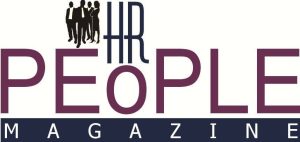1. What strategies can HR leaders use to strengthen their influence on executive decision-making and secure a place at the leadership table? What strategies have you adopted?
Regarding strategies that HR leaders can employ to influence executive decision-making and secure a seat at the table, it is important to note that this is a frequently discussed topic within the HR circle.
I firmly believe that all reputable organizations recognize that their true competitive advantage lies in their people. Everything ultimately revolves around human capital. HR is responsible for developing and managing the framework concerning people, placing it at the core of organizational operations. Consequently, HR’s role is inherently integral to the organization’s structure. If an organization aims to sustainably achieve its objectives, it is the people who will actualize these goals. While strategi…
Specifically addressing the question, several factors can assist HR leaders in influencing executive decision-making and securing a place at the executive table:
– Individual Accountability and Ownership: As an HR leader, establishing individual accountability and ownership is crucial. It is imperative to be taken seriously by demonstrating leadership in delivering outcomes and driving results aligned with the organization’s overall objectives. This fosters credibility and respect …
– Pragmatism and Discipline: Another essential quality is adopting a pragmatic and disciplined approach. People are not machines; they cannot be programmed to operate in a specific manner. Combining discipline with pragmatism allows for swift execution while incorporating empathy and reasonableness. Practical solutions tailored to the business context must be considered for short, medium, and long-term scenarios. Although navigating the associated dilemmas can be challenging, HR leaders must be adept at ha…
– Entrepreneurial Mindset: Possessing an entrepreneurial mindset is vital. While the focus is on people, it also encompasses the business’s sustainability. HR should align its initiatives with business challenges, ensuring that HR contributes to resolving these issues. HR leaders must adopt entrepreneurial thinking and a business-oriented mindset. Understanding the concerns of other business leaders and determining how people decisions can support these aspects is pivotal. Furthermore, attention to business…
2. What are the key competencies HR professionals must develop to remain relevant and effective in today’s competitive market?
There are many important competencies in HR. I’ll name a few that I have worked hard to develop in my career:
– Influencing the business: This is about understanding your organization’s business (and global markets) and using these insights to provide advice and recommendations. It is also about understanding your stakeholders and their needs, building and maintaining high-trust relationships, and challenging constructively and at the right time.
– Shaping the culture: Leading the organization towards a high performance, high engagement, and highly inclusive culture where all employees feel a strong sense of belonging.
– Future-proofing the organization and its leaders: Connecting trends in the external environment to business priorities and strategies to ensure adaptability.
– Delivering people process excellence: Leading a team that executes people processes flawlessly while driving consistency and employee focus.
– Applying insights and data analytics: Using people data to inform decisions and make HR more agile.
– Accelerating talent development: Aligning talent acquisition, workforce planning, and succession planning to attract and develop the best people.
– Recognizing and rewarding people: Designing total rewards systems that retain and motivate talent, including global mobility policies.
– Protecting and respecting people: Promoting health, safety, wellbeing, and human rights within the workplace.
3. What role should HR play in fostering a culture of inclusion and diversity, and how can it be measured effectively?
Fostering a culture of inclusion and diversity is crucial. HR must support this by providing a strategic framework and implementing effective policies, including harassment policies and psychological safety measures.
Leaders must be accountable for inclusive behavior, and HR should facilitate this through training programs. Measurement tools include engagement surveys, employee Net Promoter Score (eNPS), and diversity metrics such as the percentage of women in leadership and equal pay indicators. These help track progress and promote balanced representation.
4. What leadership principles have guided your success in shaping people strategies at your current organisation?
Strategy development requires understanding both the external environment and internal capabilities. Tools such as SWOT and PESTEL analyses help capture relevant factors.
Involving the team in the strategy development process ensures co-ownership and builds capability. This collaborative approach fosters leadership development and aligns efforts toward common goals.
5. What steps should HR take to future-proof workforce planning and ensure the company attracts, develops, and retains top talent?
Integrating strategic workforce planning with business planning ensures alignment with future needs. This includes addressing attraction, development, and retention, and linking with inclusion and diversity policies.
Reward and recognition strategies, efficient resource management, and maintaining L&D investment are key. Aligning with succession planning and performance management helps shape a supportive culture and ensures long-term talent sustainability.
6. What have you enjoyed the most about your career as an HR professional? If you hadn’t pursued this profession, what alternative career path would you have chosen?
What I cherish most is the impact I have on people—supporting them to achieve their dreams and guiding them through coaching. If not HR, I would have been a teacher, my childhood dream.
Teaching and HR are both about nurturing potential and confidence. I’ve always envisioned returning as a university lecturer to continue this mission of empowering others.
7. How can HR drive innovation and adaptability in a rapidly evolving business environment to support organizational success?
Leveraging HR analytics and AI enables faster, data-driven decisions. Adopting new technologies must comply with data protection laws like the NDPA and GDPR.
Remote work enablement, flexible benefits, and tailored learning programs enhance engagement. Empowering employees to make decisions and promoting agile work structures boost innovation and adaptability. Open communication and psychological safety further support a dynamic and resilient organization.
